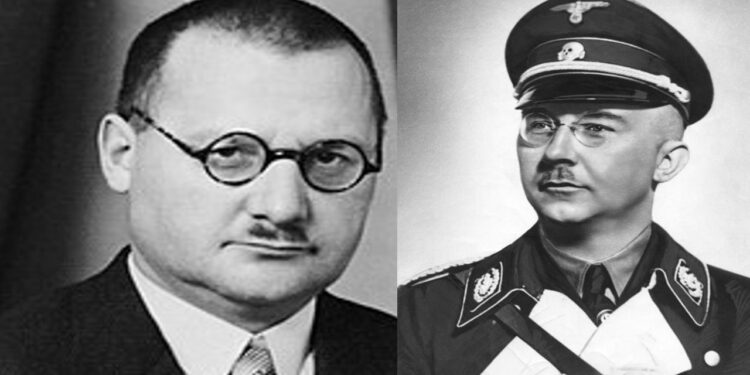Hartinger during the Third Reich: A Legacy of Courage and Justice
Joseph Hartinger’s life and work during the Third Reich exemplify an extraordinary commitment to justice and human dignity in an era characterized by brutality and oppression. As a senior prosecutor in Munich, Hartinger played a pivotal role in challenging the nascent Nazi regime’s legal atrocities, setting an early example of resistance within the legal system.
Early Career and the Rise of Nazism
Hartinger, born in 1893, embarked on a career in law and quickly distinguished himself as a capable and principled prosecutor. By the time Adolf Hitler rose to power in 1933, Hartinger had earned a reputation for his dedication to the rule of law. This reputation would soon be put to the test as the Nazis began to implement their totalitarian agenda, dismantling democratic institutions and persecuting political opponents and minority groups.
The Dachau Murders and the Quest for Justice
One of Hartinger’s most notable acts of defiance occurred shortly after the establishment of the Dachau concentration camp in March 1933. Initially set up to imprison political opponents of the Nazi regime, Dachau quickly became a site of severe abuse and extrajudicial killings. Within weeks of its opening, several inmates were murdered under suspicious circumstances.
In his capacity as senior prosecutor, Hartinger was tasked with investigating these deaths. He approached the investigation with a tenacity and integrity that would come to define his career. Despite the overwhelming pressure from Nazi officials to overlook or even cover up the crimes, Hartinger meticulously documented the evidence of murder and abuse.
Documentation and Resistance
Hartinger, alongside his colleague, Dr. Moritz Flamm, conducted thorough autopsies and collected testimonies, producing detailed reports that highlighted the brutal treatment of prisoners. They identified clear signs of torture and execution-style killings, directly implicating the SS guards.
The culmination of their efforts was a series of indictments against the perpetrators, including high-ranking SS officers. Hartinger’s reports did not merely catalog the atrocities but also underscored the illegality and inhumanity of the actions, invoking the principles of justice and the rule of law. His work represented one of the earliest formal legal challenges to the Nazi regime’s systematic brutality.
Suppression and Personal Risk
Hartinger’s courageous stand did not come without personal risk. As his investigations progressed, he faced increasing hostility from Nazi officials who were determined to suppress any opposition. Heinrich Himmler, then Chief of Police in Munich and later head of the SS, was particularly incensed by Hartinger’s tenacity. Despite the dangers, Hartinger refused to relent, driven by a profound sense of duty and morality.
Ultimately, the Nazi regime thwarted his efforts. The indictments were dismissed, and Hartinger was removed from his position. The suppression of his findings and the dismissal of the charges marked a significant victory for the Nazis, solidifying their control over the legal apparatus and enabling further atrocities.
Legacy and Recognition
Hartinger’s efforts, though suppressed at the time, did not go unnoticed. His meticulous documentation survived the war and served as crucial evidence during the Nuremberg Trials, where many Nazi leaders were held accountable for their crimes. Hartinger’s early and principled stand provided a powerful counter-narrative to the regime’s propaganda, highlighting the capacity for moral courage even in the darkest of times.
After World War II, Hartinger continued his legal career, albeit under different circumstances. He resumed his work in the judiciary and remained a vocal advocate for justice and human rights. His contributions were eventually recognized, and he was celebrated as a hero who had dared to confront tyranny with the tools of the law.
Joseph Hartinger’s legacy during the Third Reich is a testament to the enduring power of individual courage and integrity. In an era where the legal system was co-opted to serve a brutal and repressive regime, Hartinger stood as a beacon of justice. His unwavering commitment to the rule of law and his fearless documentation of Nazi crimes laid an early foundation for the post-war pursuit of accountability and justice.
Hartinger’s story serves as a powerful reminder of the importance of legal and moral principles in the face of tyranny. It underscores the potential for individuals to make a difference, even when confronted with overwhelming adversity. His work during the Third Reich not only challenged the immediate injustices of his time but also contributed to the broader historical record, ensuring that the truth of the Nazi atrocities would not be forgotten. Through his bravery and dedication, Joseph Hartinger remains an enduring symbol of justice and resistance.
Source: newshub




Recent Comments